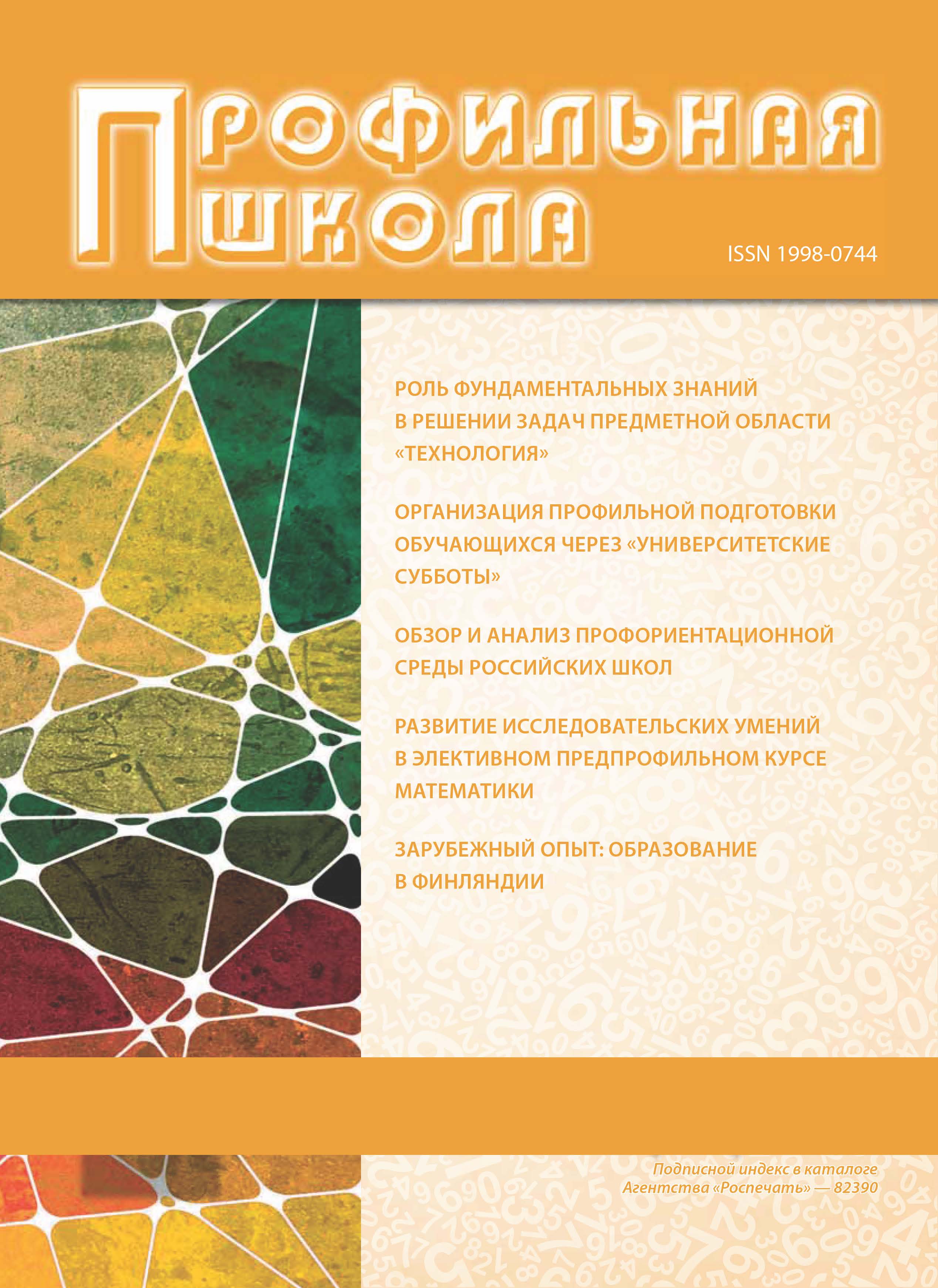Russian Federation
Russian Federation
The article discusses some aspects of improving the system of continuing education of teachers. The importance of the methods of active learning and interactive technologies in the formation of communicative, psychological and pedagogical competencies of teachers is shown. Particular attention is paid to socio-psychological training. The training learning process is described. The article is addressed to teachers and teachers, students of pedagogical universities, methodologists, directors of educational organizations.
continuing education, advanced training of teachers, competence, communication interactive interaction, active learning, training, trainer, positive thinking, communication, cooperation, refiection
1. Bykov A.K. Metody aktivnogo social'no-psihologicheskogo obucheniya [Methods of active socio-psychological training]. Moscow: TC Sfera Publ., 2005. 160 p. EDN: https://elibrary.ru/QVDISD
2. Ivanova E.O. Teoriya obucheniya v informacionnom obshchestve [Learning Theory in the Information Society]. Moscow: Prosveshchenie Publ., 2011. 190 p. EDN: https://elibrary.ru/QYFBCL
3. Kashicyna Yu.N. Innovacionnye tekhnologii v sovershenstvovanii lekcionnyh zanyatij na kursah povysheniya kvalifikacii uchitelej matematiki [Innovative technologies in improving lecture classes in continuing education courses for teachers of mathematics]. Konferencium ASOU: sbornik nauchnyh trudov i materialov nauchno-prakticheskih konferencij [ASOU Conferenceium: collection of scientific papers and materials of scientific and practical conferences]. Moscow: ASOU Publ., 2015. 1335 p. EDN: https://elibrary.ru/VSDGKV
4. Kashicyna Yu.N. Metodika formirovaniya kommunikativnyh uchebnyh dejstvij pri obuchenii resheniyu zadach na sostavlenie uravnenij [A methodology for the formation of communicative educational actions in teaching the solution of problems in the preparation of equations]. Konferencium ASOU: sbornik nauchnyh trudov i materialov nauchno-prakticheskih konferencij [ASOU Conference: a collection of scientific papers and materials of scientific and practical conferences]. Moscow: ASOU Publ., 2015. 532 p. EDN: https://elibrary.ru/UNAPDN
5. Kashicyna Yu.N., Romanova G.A. Innovacionnye processy v povyshenii kvalifikacii pedagogicheskih kadrov [Innovative processes in continuing education of teachers]. Problemy sovremennogo pedagogicheskogo obrazovaniya [Problems of modern teacher education]. Yalta: RIO GPA Publ., 2017, I. 57, pp. 215-221. EDN: https://elibrary.ru/YLSSVY
6. Nacional'nyj proekt «Obrazovanie» 2019-2024. Pasport proekta, celi i zadachi [The national project "Education" 2019-2024. Project passport, goals and objectives]. Available at: https://strategy24.ru/rf/projects/project/view?slug=natsional-nyy-proyekt-obrazovaniye&category=education (accessed 11 August 2019).
7. Panfilova A.P. Psihologiya obshcheniya [Psychology of communication]. Moscow: «Akademiya» Publ., 2013. 368 p.
8. Pastyuk O.V. Psihologiya i pedagogika [Psychology and pedagogy]. Moscow: INFRA-M Publ., 2010. 160 p.
9. Rogozhina O.V. Obuchenie treningu i ego rol' v formirovanii kommunikativnoj kul'tury pedagoga [Training in training and its role in the formation of the communicative culture of the teacher]. Dizajn i tekhnologii [Design and technology]. 2009, I. 13, pp. 159-165. EDN: https://elibrary.ru/NSLAAR






